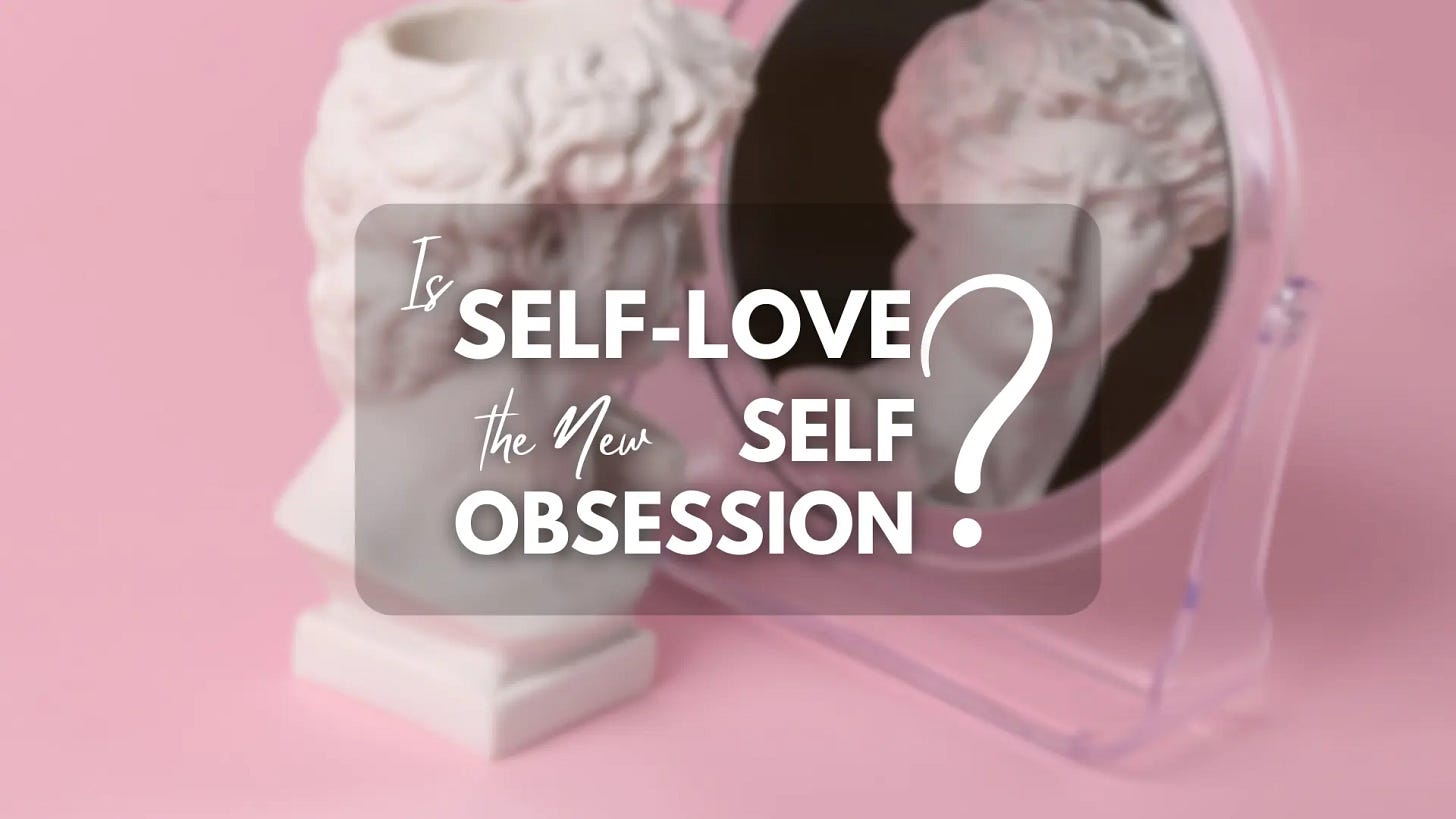We've all heard it: "Love yourself!" It's a mantra echoed from yoga studios to Instagram posts. But when does this self-love turn into something less wholesome? Let's break it down.
Self-Love vs. Self-Obsession
Self-love is all about treating yourself right, mentally and physically. It's the process of rewiring your brain to believe you are worth it and deserving of good things.
For instance, self-love could be taking a break when feeling stressed or treating yourself to a spa day.
On the other hand, self-obsession might manifest as constantly checking your appearance in the mirror or always needing to be the center of attention.
But when self-love morphs into self-obsession, it's like crossing from a sunny meadow into a shadowy forest.
Self-obsession, while it may seem empowering, can be a double-edged sword. It's about prioritizing yourself to the extent that it negatively affects your relationships and everyday interactions, potentially leading to isolation and loneliness.
The Pandemic Pivot on Wellness Industry
COVID-19 forced us to rethink our wellness routines. Pre-2020, the wellness industry was all about luxury—expensive spas, gyms, wellness retreats, and lavish retreats.
But when the world shuts down, most of us realized that happiness can be found in more straightforward, accessible ways.
This shift made "self-love" and "self-care" the buzzwords of our time. The wellness industry quickly capitalized on this, flooding the internet with self-help content.
The Pitfall of Excessive Self-Care
When self-care content focuses on positive self-talk, skincare, self-worth, and personal boundaries, it's meant to help us tackle daily life challenges. But what happens when you take these to the extreme?
Imagine prioritizing yourself so much that every critique is labeled toxic, and every disagreement becomes a personal attack. That's when self-care turns into self-obsession.
Also, I'm not suggesting that everyone practicing self-care is self-obsessed. However, a few may misuse self-care principles to justify their narcissistic tendencies.
If a self-love article is read by 100 people, some might convince themselves that their self-obsession is okay. It's important to be aware of this potential misuse and strive for a balanced approach.
How Narcissism Disguises Itself as Self-Love
Narcissism is sneaky. It often masquerades as confidence or self-assuredness.
You might think you're practicing self-love by setting personal boundaries, but are you just pushing people away?
The article on Psychologs explains that narcissism is characterized by an inflated sense of self-importance and a lack of empathy.
On the other hand, self-love is about self-acceptance and empathy towards others. It's not just about you; it's about understanding and respecting the needs of those around you.
Of course, self-love and narcissism are fundamentally different. The crucial factor that might get overlooked is empathy.
Ask yourself: Are my self-care practices harming my relationships? Am I still able to understand and respond to the needs of those around me? If the answer is no, it's time to reassess.
Approaching Self-Love and Self-Care the Right Way
So, how do you practice self-love without falling into the dark side? It's all about finding that delicate balance, prioritizing your well-being without neglecting your relationships.
Incorporate self-care practices that genuinely uplift you without isolating yourself from others.
Choose a handful of strategies that fit your life and stick to them. Remember, self-care isn't about neglecting everything and everyone around you; it's about creating harmony.
Here's what you can do:
Be Selective: Choose a few self-care practices that benefit you and fit into your daily life. For instance, you could try meditation, going for a walk, or reading a book. You don't need to follow every trend. The key is to find what works for you and brings you joy without becoming all-consuming.
Stay Grounded. Remember, self-love isn't about putting yourself above others. It's about finding a healthy balance between taking care of yourself and maintaining relationships.
Seek Professional Help: Remember, if you struggle with self-worth or mental health, it's important not to rely solely on internet advice. Seeking professional help can provide the guidance and support you need to maintain a healthy balance in your self-love journey.
Self-love, when practiced in a balanced way, can be a powerful tool for personal growth and happiness. But it's crucial to be mindful of overindulgence.
Regularly assess your practices, stay grounded, and strive for that delicate balance.
For more insights, check out these articles:
Psychologs: Narcissism vs. Self-Love discusses how self-love involves self-acceptance, while narcissism is about inflated self-importance.
Strike Magazines: The Thin Line Between Self-Love and Narcissism highlights how social media can blur the line between healthy self-regard and narcissism.
Let's continue to love ourselves, but not at the expense of losing sight of reality. Happy self-caring!






